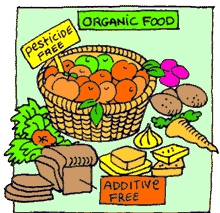This report reviews the existing scientific evidence regarding the impact of organic food on human health from an EU perspective and the potential contribution of organic management practices to the development of healthy food systems. Very few studies have directly addressed the effect of organic food on human health. They indicate that organic food may reduce the risk of allergic disease and obesity, but this evidence is not conclusive. Consumers of organic food tend to have healthier dietary patterns overall. Animal experiments suggest that identically composed feed from organic or conventional production has different impacts on early development and physiology, but the significance of these findings for human health is unclear. In organic agriculture, the use of pesticides is restricted. Epidemiological studies point to the negative effects of certain insecticides on children’s cognitive development at current levels of exposure. Such risks can be minimised with organic food, especially during pregnancy and in infancy, and by introducing non-pesticidal plant protection in conventional agriculture. There are few known compositional differences between organic and conventional crops. Perhaps most importantly, there are indications that organic crops have a lower cadmium content than conventional crops due to differences in fertiliser usage and soil organic matter, an issue that is highly relevant to human health. Organic milk, and probably also meat, have a higher content of omega-3 fatty acids compared to conventional products, but this is not likely to be nutritionally significant in light of other dietary sources. The prevalent use of antibiotics in conventional animal production is a key driver of antibiotic resistance. The prevention of animal disease and more restrictive use of antibiotics, as practiced in organic production, could minimise this risk, with potentially considerable benefits for public health.
Source: European Parliament, December 2016
PE 581.922
ISBN 978-92-846-0395-4
doi: 978-92-846-0395-4
QA-06-16-362-EN-N

- Login om te reageren
